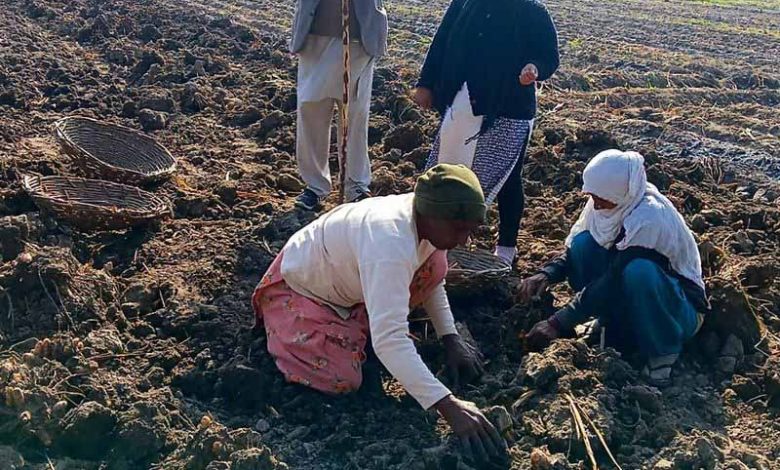Jalandhar: Women in agriculture face hard work and health risks

Jalandhar: Women play a vital role in turmeric cultivation and follow traditional practices in many rural areas. The major activities performed by women workers in turmeric cultivation are labour-intensive and time-consuming. The manual nature of the work can lead to various types of fatigue and occupational health hazards among women workers. Gayatri Moharana, a PhD student of the Department of Resource Management and Consumer Sciences, Punjab Agricultural University, under the guidance of Dr. Sharanbir Kaur, conducted a study to study the existing practices and the extent of participation of women workers in various activities and to identify the fatigue and occupational health hazards of women workers involved in turmeric cultivation. In the current scenario, farmers are looking for a new cropping pattern with high-value crops to increase household income. In Punjab, it has been observed that turmeric is being cultivated as an inter-crop by farmers.
Women play a major role in turmeric cultivation which is mostly done manually causing fatigue and health problems among them. It takes a lot of time and physical effort of women workers. Keeping this in mind, a study was conducted with the objective of identifying the labour of farm women involved in turmeric cultivation in Ludhiana, Jalandhar and Hoshiarpur districts of Punjab. Data was collected through primary sources with the help of structured interview schedule and participant observation methods while performing various tasks related to turmeric crop.
The results revealed that most of the tasks were seasonal and took a lot of time and physical effort which was tiring and a health hazard. Separating rhizomes took the most time (10 to 12 hours/day) followed by harvesting, gathering, drying (8 to 10 hours/day) and the rest of the activities except boiling took 6108 hours. It was observed that the workers were less comfortable using traditional techniques while boiling/ harvesting and sieving. It was evident that most of the activities involved static awkward postures and repetitive movements such as sitting, squatting, bending and twisting of body parts by the workers. These prolonged awkward postures cause musculoskeletal problems in the long run and are also responsible for occupational health hazards.
Except harvesting (50.00%) and carrying the produce (33.33%), all the post-harvest activities such as separating finger rhizomes from mother rhizomes, drying, cleaning, grading 8 sorting, packaging and storage were considered repetitive tasks and forceful activities. In all the activities body parts such as upper arm, lower arm, palm, fingers, shoulder, neck, head, upper and lower back were used repetitively and forcefully. Hence, this study suggested suitable ergonomic interventions further to women friendly technologies such as improved harvesters, boiling drums and polishing machines to reduce drudgery and occupational health hazards of women workers.





